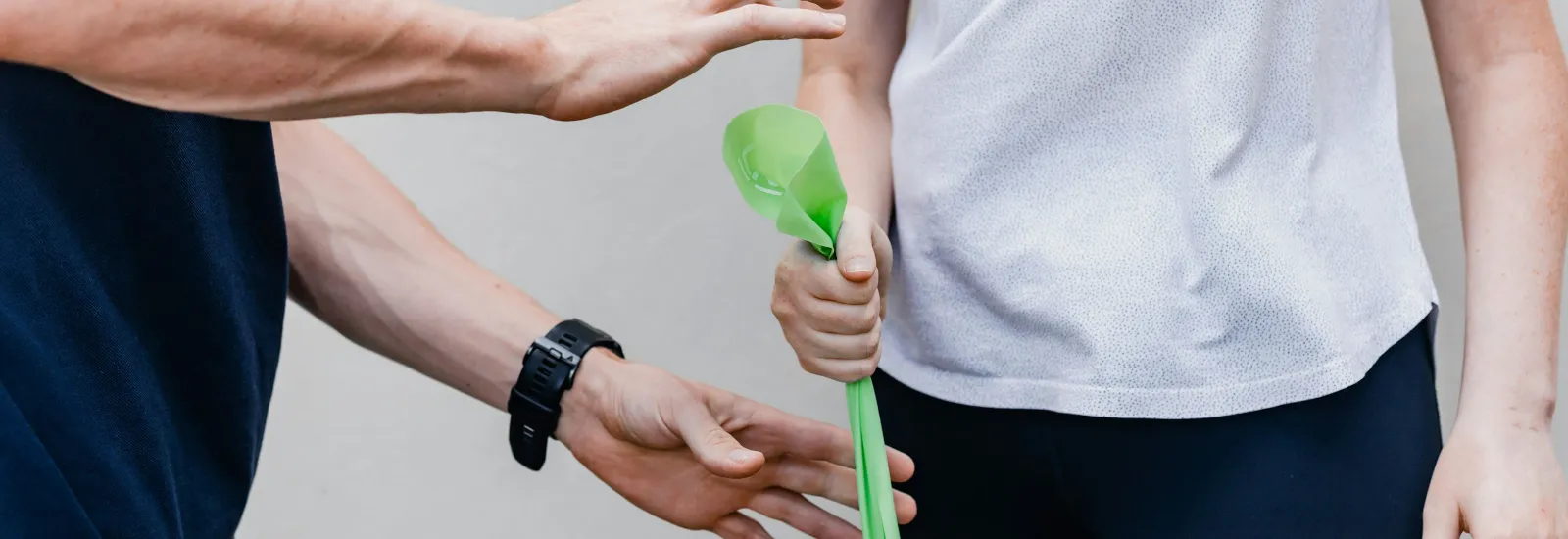
Prehab: Prepping for joint replacement makes recovery faster
3-minute read
You've likely heard of rehabilitation, the process of
regaining your strength and mobility after joint replacement. However, you might
not be aware of the benefits of prehabilitation (prehab for short). By prepping
for joint replacement surgery with prehab, you might be able to make your
recovery faster and less painful. Through aerobic and strength-training
exercises, along with stretching, you can help minimize the time it takes you
to regain
your mobility and independence.
Why prehab matters
After joint replacement surgery, you'll get up and move
around very soon once you're fully awake. If you can't move independently and
perform activities of daily living, you might spend time in the hospital doing
inpatient rehabilitation until you're able to be more independent. The longer
it takes to regain your ability to move without assistance, the longer you might
stay in the hospital.
Investing time in prehab for at least six weeks before your
scheduled joint replacement pays off. Research shows patients who follow a
prehab routine of stretching, aerobics, and exercises to build strength before
knee and hip replacement were up to 73%
less likely to require inpatient rehabilitation.
What to expect with prehab
Prehab aims to get
you in the best possible physical condition before surgery, so your recovery
time and pain are lessened by improving strength, endurance, and range of
motion before joint replacement surgery. Your prehab team includes a physical
therapist, who will teach you the movements necessary to strengthen your
muscles and joints, based on the type of joint replacement surgery you're
having.
Your training might include:
- Aquatic
training: Swimming, water aerobics
- Balance
training: Standing on one foot,
walking heel-to-toe
- Proprioception
training (awareness of the body's placement): Balancing on an uneven surface, single-leg balance
- Strength
training: Weightlifting, bodyweight
exercises (such as push-ups or planks)
- Stretching: Yoga, wall stretches
Prehab for lifestyle and home recovery
Physical exercise is only part of a successful prehab
program. The best prehab outcomes also come with discussions
about lifestyle changes that will help you
heal after surgery. Your provider will talk to you about:
- Avoiding processed foods
- Focusing on fruits, vegetables, whole grains, and lean protein in your diet
- Limiting or avoiding alcohol
- Quitting smoking
Preparing
your home for recovery is also
essential:
- Bathroom accessibility. Talk to your prehab team about what tools or assistance you'll need to bathe and use the toilet by yourself as you recover.
- Clutter
removal. Make sure you have a safe,
clutter-free path that allows you to move from one room to the next easily.
- Entertainment
and communication. Make sure remotes, tablets, phones, and laptops are
accessible and functioning, with a charging station within easy reach.
- Make-ahead
meals. Have frozen meals ready you
can heat and eat.
- Medications.
All medications and water should be easily accessible in the place where
you'll be most often during your recovery period.
- Support from loved ones. Notify friends and family of your surgery and recovery period and ask them to check on you. Make sure you have updated contact information for them so you can reach out if needed.
MyReid Care Companion
Your care team will help you create a plan to prepare for surgery. And to make things easier, you can use the MyReid mobile app's Care Companion feature to manage all your tasks.
MyReid Care Companion is a great way to build communication
between you and your care team as you work together through your plan. Along
with simple to-do tasks, the feature also offers interactive educational
materials to help you better understand how to manage your health.
With MyReid Care Companion, your care team can monitor your
progress while you remain in the comfort of your home.
Talk to a Reid
Health rehabilitation expert to find out more about prehab and joint
replacement surgery.

